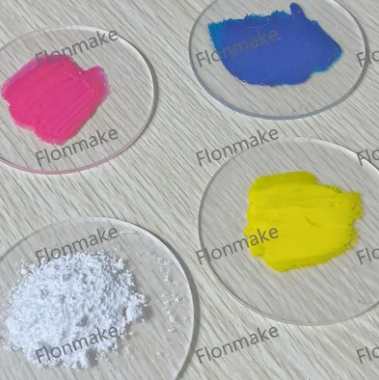The term "food additives" often conjures images of complex chemical formulas and unhealthy processed foods. However, the reality is that additives are fundamental to the modern food industry, serving crucial functions from preservation to texture enhancement. For everyone from artisanal bakers and boutique beverage makers to large-scale food manufacturers, knowing where and how to source these ingredients is critical. If you're searching for food additives for sale, navigating this vast market requires knowledge, caution, and a clear understanding of your needs.
This guide will help you understand the landscape, ensure quality and safety, and make informed purchasing decisions.
What Exactly Are You Buying?
First, it's essential to define what you need. "Food additives" is an umbrella term for any substance added to food to achieve a specific technical effect. They fall into several key categories:
Preservatives: These extend shelf life by preventing spoilage from bacteria, molds, and yeasts. Examples include sodium benzoate, potassium sorbate, and citric acid.
Emulsifiers & Stabilizers: They help mix ingredients that would otherwise separate, like oil and water, ensuring a consistent texture. Lecithin (often from soy or sunflower) and xanthan gum are popular choices.
Sweeteners: This category includes both caloric sweeteners like high-fructose corn syrup and zero-calorie options like sucralose or stevia extracts.
Acidulants & pH Controls: These regulate acidity or alkalinity, affecting taste, preservation, and texture. Common ones are citric acid, malic acid, and sodium bicarbonate (baking soda).
Flavors & Colors: This is a huge category, encompassing everything from natural fruit extracts and spices to FDA-approved synthetic colors like Red No. 40.
Identifying the exact additive and its required purity is your first step.
Where to Find Food Additives for Sale
The marketplace is diverse, catering to different volumes and needs:
1. Industrial Chemical & Ingredient Distributors: Companies like Univar Solutions, Brenntag, and IMCD are giants in this space. They primarily serve large-scale industrial clients, selling in bulk quantities like 25kg bags or full drum shipments. They offer technical support and stringent quality certifications.
2. Specialized Food Ingredient Suppliers: These suppliers focus exclusively on the food and beverage industry. They often provide a more curated selection, including unique blends and specialty ingredients tailored for specific applications like plant-based meats or gluten-free baking. They cater to both medium and large businesses.
3. Online Retailers (B2B and B2C): Platforms like Amazon, eBay, and Alibaba list countless additives. This is a buyer-beware zone.
Pros: Accessibility and small quantities are ideal for startups, home bakers, or R&D labs.
Cons: Risk of inconsistent quality, mislabeled products, and suppliers with unclear safety certifications. Always check seller reviews and product specifications meticulously.
4. Direct from Manufacturers: For very specific, high-volume needs, purchasing directly from the manufacturer (like ADM, Cargill, or DuPont) is an option, though often with high minimum order requirements.
The Non-Negotiables: Safety and Compliance
This is the most critical part of your purchasing journey. Not all food additives for sale are created equal, and not all sellers can be trusted.
Food-Grade Certification: The additive must be explicitly labeled as "Food Grade" or "FCC" (Food Chemicals Codex) grade. This distinguishes it from industrial or technical-grade chemicals, which may contain harmful impurities.
Supplier Verification: Always request documentation. Reputable suppliers will provide:
Certificate of Analysis (CoA): A document from the manufacturer verifying the product's specification, purity, and composition.
Safety Data Sheet (SDS): Provides handling, safety, and first-aid information.
GMP & FDA Compliance: Ensure the supplier follows Good Manufacturing Practices (GMP) and that the additive is approved for its intended use by the relevant food safety authority in your country (e.g., FDA in the USA, EFSA in Europe).
Labeling and Traceability: The product should be clearly labeled with its chemical name, batch number, expiration date, and storage conditions.
Key Considerations Before You Buy
Application & Dosage: Understand why you need the additive and the recommended usage levels. Overuse can be illegal, unsafe, and ruin your product's taste and texture.
Quantity: Buy in a quantity that makes sense for your scale. While bulk is cheaper per kilogram, avoid buying more than you can use before its shelf life expires.
Storage: Can you store the product properly? Many additives require cool, dry, and dark conditions to maintain their efficacy.
Conclusion: An Informed Purchase is a Safe Purchase
The search for food additives for sale is more than just finding the best price. It's a process built on due diligence. Whether you're perfecting a new vegan cheese recipe or scaling up a commercial sauce production, the quality of your ingredients directly impacts your final product's safety, quality, and success.
Prioritize reputable suppliers, demand transparency through documentation, and never compromise on food-grade certifications. By doing so, you harness the power of food science to create better, safer, and more consistent products for your customers.
Navigating the Marketplace: A Buyer's Guide to Food Additives for Sale

